Snoring occurs for different reasons. Yet, functioning and unimpeded nasal breathing is a prerequisite for a snore free night. If the nose is congested or misaligned, it may facilitate the emission of undesirable noises. We will show you different approaches to finding a solution to this issue – From nasal dilators through to nasal irrigation devices.
Nasal breathing
If the nose is congested or misaligned – for example, due to a mucosal swelling that often goes along with the common cold or due to an anatomical peculiarity such as nasal polyps, enlarged nasal conchae or a deviated nasal septum – airway resistance will increase. In other words, you will find it difficult to breathe in or out freely. Obstructions lead to turbulences in the flow of air within the nose, which in turn causes the surrounding tissues to vibrate. Physically, the mechanism is comparable to the effect of a whistling compressed air valve.
In many cases, impeded nasal breathing may not be the state that triggers snoring, but an important contributory cause. Because when you’re not able to breathe through the nose properly, you will automatically switch to mouth breathing. However, breathing through the mouth not only is annoying due to the associated noise emission, but it also promotes open mouth snoring, which is a type of snoring where the flow of air causes the tissue of the soft palate to vibrate. Moreover, it increases the susceptibility to infections, this occurs because the air is not filtered as it is when you breathe through your nose. Bacteria and viruses that also float in the air remain unfiltered as they are inhaled and are then transported to the lungs, where they promote infections.
You should therefore make sure that the nose always remains free to ensure unimpeded nasal breathing.
Ways to keep the nose clear
Xylometazoline, is a substance that is used in nose sprays and can provide for short-term relief. It is frequently used when you have caught a cold.

Xylometazoline ensures that the small blood vessels in the nasal mucosae constrict. The swelling of the mucous membrane starts to recede as a consequence thereof. As a result, the nose is no longer congested. Breathing air in becomes easier. Such nasal sprays shouldn’t be taken for longer than a week, though, as they dry out the mucosa and may become habit forming. As an alternative, there are sprays that are made from sea salt and essential oils, which are also meant to bring about a reduction in swelling. They can be applied without any concerns. There are, however, hardly any scientific studies available to support their efficacy.
Nasal irrigation
Nasal irrigation or nasal lavage can be helpful, especially if you have caught a cold and to flush out excess nasal mucous out of the nasal cavity. The mixture of saline additives in water is believed to effect a reduction in the mucosa’s swelling.
The nozzle of the nasal douche is inserted in one of the nostrils. Afterwards, the water flows through the nose and comes out again through the other nostril. At the same time, the mucous that clogs up the nose, is secreted. What is more, nasal douches also help people who are allergic to pollen during periods of high pollen count.
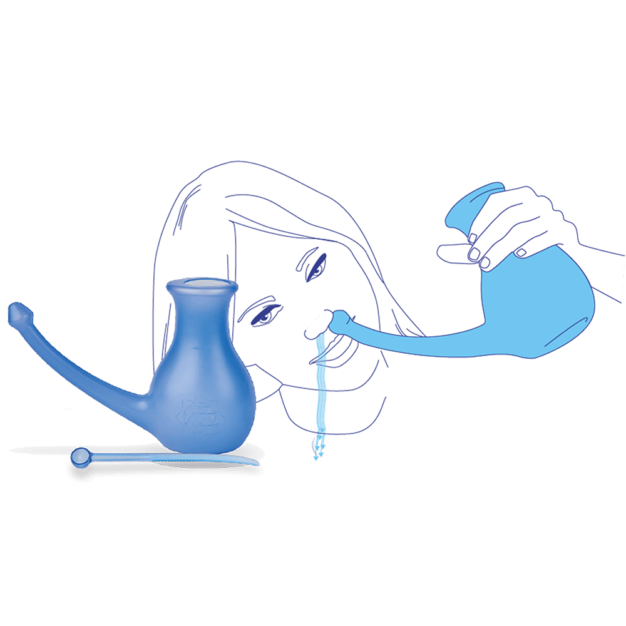
Nasal dilators
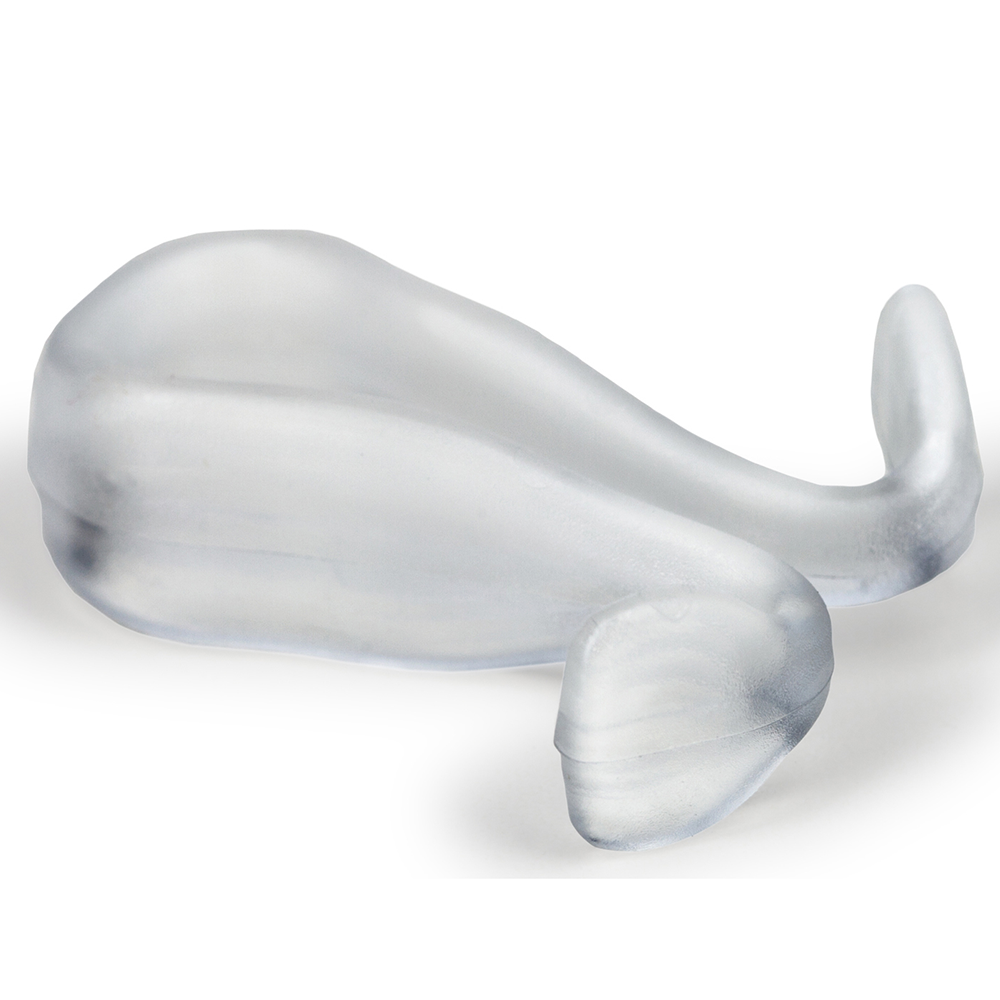
Nasal dilators – also known as nasal spreaders –are also meant to widen and to keep the nostrils, as well as the anterior part of the nasal cavity, open. Unlike nasal strips the nasal airways are maintained from within. Nasal dilators are available in different designs. The most common ones are the wing shaped and tubular shaped cones. Apart from that, there are also special types and combinations thereof, such as the dowel-shaped dilators.
For those who suffer from allergies, nasal dilators help provide relief as well – because there are special nasal dilators, which have an integrated foam filter that filters breathing air during inhalation. It minimizes exposure to pollen, house dust and animal hair, which can be responsible for dry and irritated nasal mucosae.
A stent for the nose
AlaxoLito is a stent for the nose. Stents are predominantly used in vascular surgery in order to keep constricted arteries open. They are made of a fine metal mesh that forms a tunnel by gently expanding, by attaching to the vascular wall and widening the vessel in the process.
Of course the AlaxoLito is considerably larger than such a vascular stent, but the application principle is similar. Once the stent has been inserted into the nose, the metal mesh expands and widens the nasal airways. AlaxoLito can be put in the nose and removed again in the morning by the patient themselves. This aid is especially recommended for use in the case of enlarged nasal conchae.
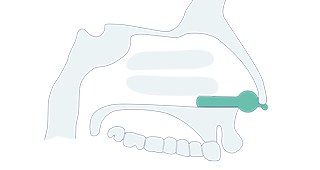
Surgical procedure
An operation may also provide relief from snoring in the case of specific anatomical conditions affecting the nose. Correcting a deviated nasal septum or the excision of nasal polyps are examples of such a surgical procedure. An experienced ENT specialist should, however, carefully examine, whether such a step is advisable in your case and whether snoring issues can really be fixed this way or not.
In many instances surgery has proven to be successful without getting rid of the snoring problem. This can be explained by the fact that issues with nasal respiration only seldom trigger the occurrence of snoring. Improving nasal breathing therefore is mostly just the first step to finding a long-term solution. An operation may be very helpful, but is normally not sufficient.
Nasal dilator purchasing advisor
What must you take into consideration when making a purchase? See all our nasal dilators presented here.

Medical Doctor, Berlin
Jan Wrede works as a medical doctor in Berlin. He studied medicine at FAU University in Erlangen-Nuremberg and Semmelweis University in Budapest. He had already written numerous scientific articles during his studies, especially on the subject of snoring.


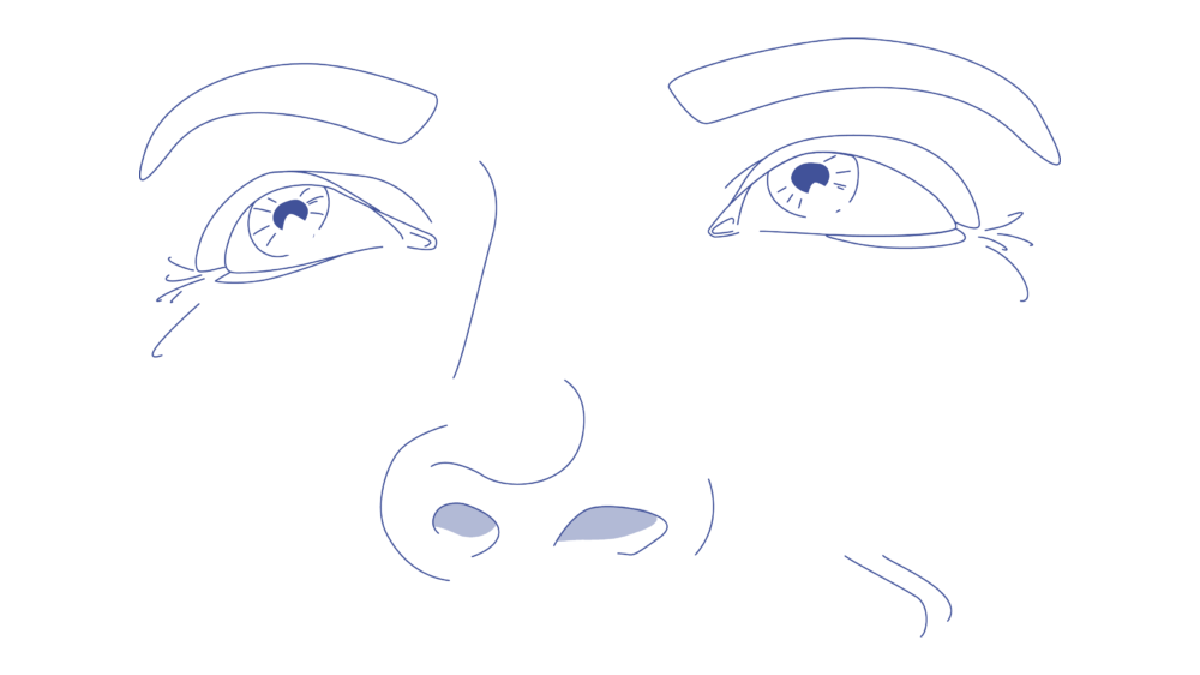
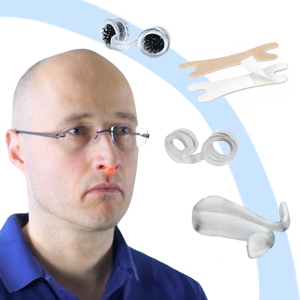
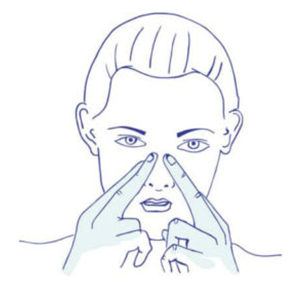

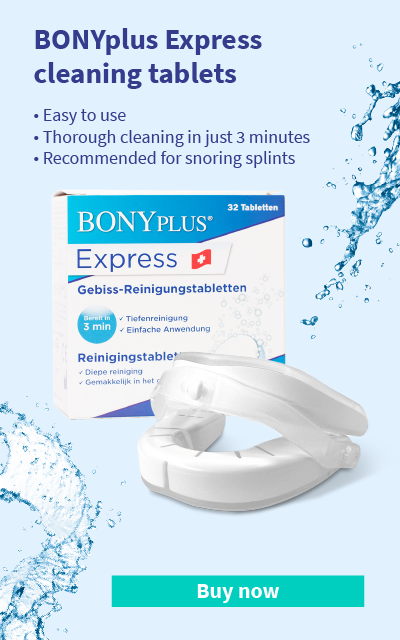
 Welcome to SomniShop
Welcome to SomniShop